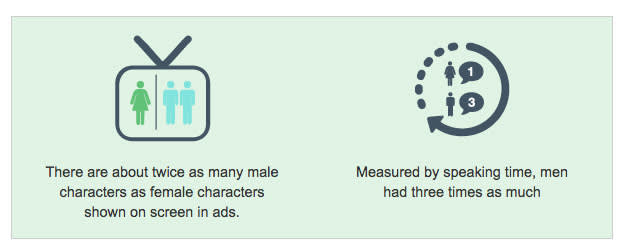Understand the Impact of Inclusive Marketing
Learning Objectives
After completing this unit, you’ll be able to:
- Define inclusive marketing.
- Explain how to reach new audiences and build customer trust.
Introduction
We have entered the Fourth Industrial Revolution, a time when emerging technologies are shifting everything about the way we work and live. Companies are faced with not only changing technology but also a changing society, expectations, and responsibilities. Many people believe that businesses have a responsibility to make sure everyone is being brought along into this next era. At Salesforce, we believe that our higher purpose is to drive Equality for all people. We know that this is not just the right thing to do, but also the smart thing.
We recognize that we are not just serving our shareholders, but also all of our stakeholders, including our customers, employees, and community. A core part of how we all connect with the world is through our business practices, including marketing.
In this module, we share research on the importance of inclusive marketing: what it is, how it can impact your brand as well as society, and six principles to guide you as you develop new content. Let’s get started!
Understanding Inclusive Marketing
We define inclusive marketing as creating content that truly reflects the diverse communities that our companies serve. It means that we are elevating diverse voices and role models, decreasing cultural bias, and leading positive social change through thoughtful and respectful content.
Our responsibility as marketers is to relay our brands’ messaging in a way that resonates with people from all backgrounds, regardless of race, ethnicity, gender identity, age, religion, ability, sexual orientation, or otherwise.
Beyond diversity, truly inclusive marketing can elevate the stories and voices of people that have been typically marginalized or underrepresented, deepen connections with customers, and even influence positive social change. Marketing can have a powerful impact on society—from our definitions of beauty, to what a scientist looks like, to what an athlete should be. What if we started to see more inclusive images all around us? For example, we could start reimagining…
...what a CEO looks like:

….what love looks like:

….what an athlete looks like:

...what beauty looks like:

Image credit: Georges Biard, Winnie Harlow Cannes 2018, CC BY-SA 4.0

...what an engineer looks like:

This is the power of inclusive marketing — we can influence real change and inspire the next generation by breaking stereotypes and honoring the diverse world around us.
Why Inclusive Marketing Is Important
1. Customers want to see themselves represented.
Consumers want to see themselves reflected in the brands they are interacting with. In fact, 52% of consumers are likely to switch brands if a company’s messaging isn’t personalized and inclusive of them, according to Salesforce’s State of Marketing report. However, today’s marketing can often lack true representation and perpetuate stereotypes. For example, a recent study found that only 37% of people who appear in ads are women and 85% of women said ads do not represent their real-world selves.


Part of seeing themselves reflected extends to their values and their changing expectations of how companies speak out. In the Salesforce Ethical Leadership and Business research report, which surveyed over 2,400 consumers, we found that 90% of consumers say companies have a responsibility to improve the state of the world. Consumers also want companies to take it one step further, with 87% believing companies should stand up and advocate for human rights.
And when companies do speak out, there’s a tangible loyalty impact. For example, Google found that 70% of Black millennials say they are more likely to buy from a brand that takes a stand on race-related issues.

2. Reach new audiences.
With People of Color making up almost 24%, and women almost 51% of the population in the United States, marketers miss out on a huge market opportunity by not including these communities in their advertising. And with China and India making up 2.8 billion of the world’s population and rising, inclusive marketing has never been more relevant.
This is also important to consider when it comes to marketing to Millennials. “With 43% of the 75 million millennials in the US identifying as African American, Hispanic, or Asian, if a brand doesn’t have a multicultural strategy, it doesn’t have a growth strategy,” according to Nielsen report.
3. Attract the next generation workforce.
The workforce of the future will be increasingly diverse and expect more and more from the companies they work for. Businesses that don’t reflect these changes will miss out on a tremendous pool of talent and opportunity to authentically connect with their diverse customer base.
Without a sharp focus on Equality and inclusion, companies can run the risk of appearing out of touch, disengaged, distant, or even offensive. On the other hand, when companies do this well they build brand loyalty, deepen connections with their audiences, become destination workplaces for all populations, and lead their industry.
In the next unit, we look at how to introduce inclusive marketing to your company.
Resources
- Geena Davis Institute on Gender in Media
- Google Connect Black Consumer Survey 2017
- Harvard Business School Study: Collaborating Across Cultures
- Pew Research Center: “Post Millennial” Demographics
- Salesforce Study: The Impact of Equality and Values Driven Business
- Blog: Ethical Leadership and Business in the 4th Industrial Revolution: New Consumer Research